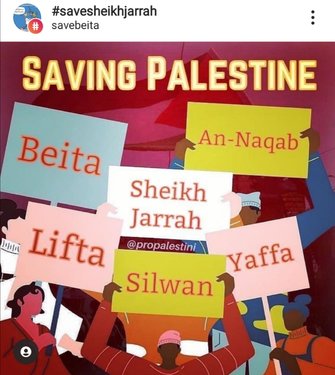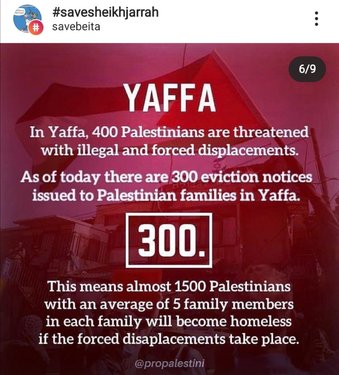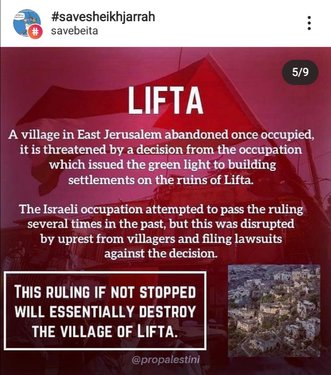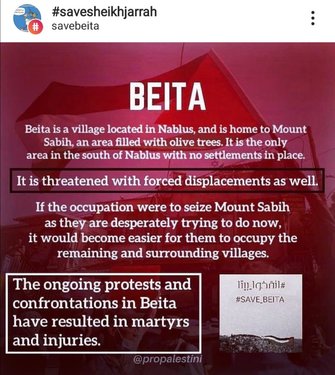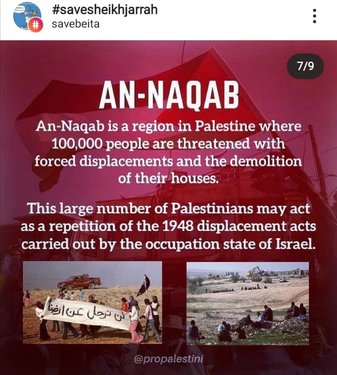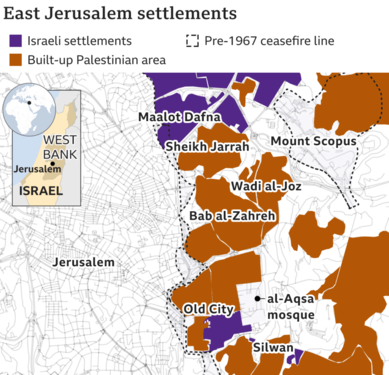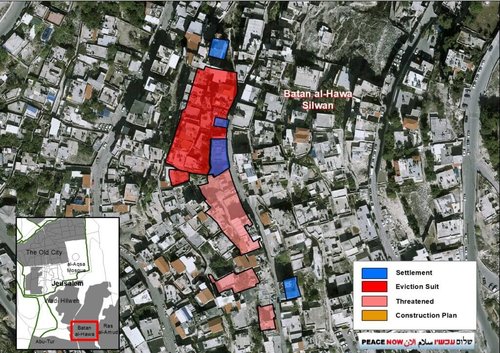-
Posts
8,466 -
Joined
-
Days Won
773
Content Type
Profiles
Forums
Events
Everything posted by ummtaalib
-
Allah ta’ala sees men and women equally but made them different to each other and the responses given by men and women are based on their biology, chemistry and physiology and perhaps science has not gone far enough into these differences. It is when people do not understand others in their relationships, that it creates tension. The mistake people make is that they think, “He/she should have behaved this way because I think it is appropriate” or because “This is how I was brought up.” People expect others to be a certain way and when this happens in a marriage then it causes problems. Knowing and understanding why people respond the way they do will lead to being less resentful and judgmental and being more tolerant. Scientific research in the last 15 years has shown that men and women are not alike biologically. There is growing evidence that Oxytocin to Testosterone to Progesterone and even the brains of men and women are different. This does not mean one gender is better than the other. It means the differences are unique and critical in helping men and women understand each other. Oxytocin Oxytocin in the brain, acts as a chemical messenger and has an important role in many human behaviours. It has the power to regulate our emotional responses and pro-social behaviours, including trust, empathy, gazing, positive memories, processing of bonding cues, and positive communication Hugging, kissing, cuddling, and sexual intimacy can all trigger oxytocin production, which can strengthen bonds between adults, too. These effects have led oxytocin to be grouped with the other happy hormones — hormones known to have a positive impact on mood and emotions. In women Oxytocin helps in maintaining relationships because Oxytocin is known for the compassionate effect a person feels from it. When a woman hears her child cry, milk excretes from the breast and this is due to the Oxytocin. This is an involuntary reaction to the child’s cry. Imagine the Rahmah involved. She stops doing whatever she is doing and feeds her child. Women tend to be more patient and softer when they see their child crying. Thereafter when the woman cuddles, hugs, touches her child, more Oxytocin is excreted which helps in regulating other emotional responses which are more conducive to social behaviours i.e. they help in relationships. For women this hormone helps them to do what Allah ta’ala has given them the primary responsibility of, i.e. nurturing the family and for men it helps them do what they were made responsible of i.e. being Qawwaam. Mirror Neurons In our brains are Mirror neurons which allow us to learn through imitation (mirroring behaviours). They enable us to reflect body language, facial expressions, and emotions. Mirror neurons play an essential part in our social life. They are the key for child development, as well as relationships and education. Imitation has always been a powerful learning tool. The human brain is enabled with different mechanisms that allow us to imitate actions. Babies are capable of reproducing facial expressions, and as adults, we imitate basic behaviour. When we see a baby smile and we smile back. This is due to the mirror neurons. Similarly, if we see someone hurt, our facial expression will show the expression of being hurt yourself. Mirror neurons are responsible for yawning when we see someone else yawn and the way laughter can be contagious. It seems like we have the capacity to feel what others feel, empathize with them and understand their feelings. What happens in the brain for this to happen? The answer is mirror neurons. Testosterone Testosterone is excreted more in men than women. For men it helps build bone and muscle. It also helps in better verbal memory, mathematical reasoning and libido. Men tend to think logically and rationally and even appear to be rude in their approach while women solve problems in a different way. Men’s self-esteem is higher and they are more dominant which is why they do not like women to be controlling and being decision makers. Therefore, we should respect this part of their biology otherwise it will create problems. When a decision is necessary for the good of the family and our husband does not see it at the time, then there are ways we can go about it with wisdom. There can never be two principles or two prime ministers however the second in line also has a lot of responsibility. Nabi sallallaahu ‘alayhi wasallam was perfect in his role as husband, father, companion and guide to humanity and he had these manly characteristics and his Sunnah should be our role model. He showed mercy and compassion with family, companions and even the non-Muslims and his enemies with Oxytocin and we should find that balance.
-
Equality of judgment between men and women refers to being equal in the sight of Allah ta’ala however this often translates to “men and women are unequal”. Allah ta’ala is al-‘Aadil (The Just). He is just and expects us to be just. Men and women are different however, the differences between men and women does not affect judgment. If we do not acknowledge and understand the differences then we will constantly fall into the trap of trying to be equal in something that is not meant to be equal. No one will be wronged Allah says in Surah Nisaa'. verse 124, "But those who do good—whether male or female—and have faith will enter Paradise and will never be wronged ˹even as much as˺ the speck on a date stone" This verse shows there is total gender equality in terms of judgment of men and women. Many verses in the Qur’an encourage both men and women (ذَكَرٍ وَأُنثَىٰ) to do good deeds and both are mentioned in terms of the reward. Adam AS and Hawwa AS were judged equally from the beginning. Allah ta’ala decided for them according to the deed they committed and not their gender. By default, humans are distinguished among all of creation and then further distinguished according to their devotion to Allah ta’ala. Therefore, all humans are valuable in the sight of Allah ta’ala and honoured by their virtue. Those women who feel less than their husbands or any male, should feel confident in how Allah ta’ala created us and that He will judge men and women according to their virtue.
-
Other Relationships So far we have discussed marriage because it is one of the biggest backbone of society, the fabric which keeps communities together, what joins families and the objective is to expend family units. Islam promotes a collectivistic society with joint decisions on a family and even extended family level. Generally, in the West focus is more on the individual level though this was not so before. In the 1900’s when men went to war and women came out to world, they did not want to go back to their previous life after experiencing independence. Women’s movements appeared and society changed. The East however, is now rapidly changing and becoming an individualistic one like the West Research shows that people benefit more with extended family support. They suffer less depression, anxiety, etc. and there is also financial benefit. This is if there is more Deen and Deeni as well as secular education. People with Deeni education mind the boundaries and accommodate others. Identities don’t get blurred or damaged. Unfortunately, many people are not educated Deeni wise. So whether in the East or West, people need to be educated in Deen where Akhlaaq and Adab comes from. Islam promotes care of community and to make sacrifices for the greater good. This enables others giving support when needed. Unfortunately, in marriage and in other relationships, both sides take the individualistic approach and it’s all about “me” and when that happens, Akhlaaq disappears. It’s not about giving the bare bone rights, it’s about doing the best from our side because Islam teaches us Ihsaan. In laws In laws are our husband’s parents due to whom we are married to them. They may have different ways due to various reasons like they may have faced struggles of migration or colonisation or to get fed and educated. Therefore, they may be in survival mode. Have love and respect in the heart as they are Muslim and your elders. Think of them as the mum and dad of the man you love. Sometimes women are so good to others but not to in laws. Lean towards them and keep hearts clean. Do Mashwarah about household duties and share in the When women marry and move in with in laws, it is great change for both sides and adjustments are required on both sides. Daughters in law should have a loving, happy, joyful and “I’m going to try” approach even though it will be hard at first. She will have to make a new identity. And use her skills in the family dynamics. If a woman bonds with her in laws they can a great source of support. Faults can lie on both sides. Sometimes in laws expect a “maid” and sometimes daughters in law go in with a chip on their shoulders. If it gets toxic then it is wiser to move out however using wisdom, take it slowly, patiently and kindly. It will be hard but may increase love. If you cannot move out then bear your circumstances with patience. The husband if often stuck in the middle. He has to mediate and arbitrate and women should take their feelings into consideration.
-
Children It is their right that we provide them with is food, clothes according to need, shelter and love. Give them unconditional love. Love them no matter what they do. If you do that, they will know that what you do for them is not to manipulate them or emotionally blackmail them. It is because you love them. Be firm but kind. If they yell and curse it means we did not do our job. If they demand and yell in a shop, take them out and let them yell till they are finished then take them back in telling them they cannot behave in this manner Do not hit, insult or abuse children. Love them but do not let them take advantage. Children WILL mess up. Give them opportunity to make up as Allah ta’ala gives us opportunity to make Tawbah and make up again and again. By yelling and hitting we are teaching them to yell and hit. Take a nurturing attitude. Relax when nursing babies as emotions transfer to the baby. Let them connect to the Qur’an, Dhikr, etc. Calm parents raise calm children and anxious, depressed children raise anxious depressed children. Du’a for pious children: Surah Furqaan 74 رَبَّنَا هَبْ لَنَا مِنْ أَزْوَٰجِنَا وَذُرِّيَّـٰتِنَا قُرَّةَ أَعْيُنٍ وَٱجْعَلْنَا لِلْمُتَّقِينَ إِمَامًا "Our Rabb! Make our spouses and our children to be the comfort of our eyes, and make us leaders of the righteous."
-
Click on image to enlarge This week marked the start of the annual Palestinian olive harvest, an ancient tradition on which 80,000 families still rely for their livelihoods. Yet these families face growing economic hardship due to Israeli land confiscations, access restrictions, settler attacks, and not least the widespread uprooting, destruction and theft of the trees themselves.The infographic 'Uprooted' focuses on the staggering fact that Israeli authorities have uprooted over 800,000 Palestinian olive trees since 1967, the equivalent to razing all of the 24,000 trees in New York's central park 33 times. Click on image to enlarge
-
Ethnic Cleansing continuesThe Israeli occupation authorities forces the Jerusalemite Ezzat Zeyadah to demolish his home in the occupied city of Jerusalem. Eye On Palestine on Instagram: "🇵🇸#Palestine || Ethnic Cleansing .. The Israeli occupation authorities forces the Jerusalemite Ezzat Zeyadah to demolish his home in the…"
-
Great Alhamdulillah..as long the content is sourced it should be good
-
Only if your friend is a Scholar. We have a forum here for other Madhaahib and it would be good to post some main Fiqh of the Maliki, Shafi'ee and Hanbali Madhaahib
-
Are you a scholar? May I ask if you are familiar with Maliki fiqh? Especially women's rulings?
-
Assalaamu 'alaykum warahmatullah Welcome to the forum! Jazaakillahu khayran for posting, please continue posting beneficial content. It will be helpful if you mention the source of the information or in this case the name of the book. May Allah ta'ala make us from those who strive against the lower self and attain beautiful akhlaaq
-
"My bed was there" My bed was there, says 4 yr-old Palestinian child left with just rubble: ethnic cleansing in instalments is still ethnic cleansing . To those who practice "Out of sight, out of mind"... could you take just one second to imagine if this was your son and your home? What is the psychology of a child showing his room in his destroyed house? A system where even children's rights are stolen, Institutions, states and the media unconditionally support cruel oppressors but replace the story with fabricated one. So people continue in asleep. Our Voice Matters (@our.voicematters) • Instagram photos and videos
-
Shame on Bahrain!! Shame on Morocco & Sudan!! 29 June 2021 Bahrain announced on Tuesday that it had officially appointed the kingdom’s first ambassador to Israel. Bahraini state media said that Khaled Yousef al-Jalahmah would serve as Bahrain's envoy to the State of Israel, and was congratulated on the position by the country's monarch. Jalahmah previously served as the deputy ambassador to the United States and had also held several other senior positions in the Bahraini diplomatic service. The announcement came after Bahrain agreed to normalise ties with Israel in September last year, alongside a number of other countries in the region, including Morocco, Sudan and the United Arab Emirates (UAE). Although Israel already has an embassy in the Bahraini capital Manama, the kingdom is yet to establish an embassy in Israel. Source
-
Isr*el demolished the home of Al-Abasi family. This is the second demolition in #Silwan today. Friends Of Al-Aqsa (@friendsofalaqsa) • Instagram photos and videos
-
UAE welcomes Israel’s Foreign Minister Yair Lapid As we stand united against the colonisation of #Palestine, the #UAE welcomes Israel’s Foreign Minister Yair Lapid, with open arms, normalising the war crimes currently committed against the Palestinians of #Silwan. He is the first Israeli Minister to officially visit the UAE. Lapid is scheduled to open Israel’s first embassy in Abu Dhabi, as well as consulate within #Dubai. The foreign minister is then expected to sign a number of trade agreements, designed to increase the level of economic cooperation, in spite of the fact that #Israel recently indiscriminately killed a minimum of 256 adults Inc at least 66 children in #Gaza. This also comes after recent attacks by Israeli forces on Al-Aqsa mosque. 🔴 #FOA stands strongly against the normalisation with Israel as well as the colonisation of Palestine! Friends of AlAqsa Friends Of Al-Aqsa (@friendsofalaqsa) • Instagram photos and videos Shame on UAE!
-
Isr*eli occupation policeman brutally assault and beat up Mr. Nedal Rajabi after demolishing his commercial store in Al-Bustan neighborhood in the town of Silwan, occupied Jerusalem, today. Warning: Brutal assault on people trying to defend their basic human rights www.instagram.com/p/CQsgobLnJY-/
-
An Israeli bulldozer demolishing a shop in Silwan village Eye On Palestine on Instagram: "🇵🇸#Palestine || An Israeli bulldozer demolishing a shop in Silwan village. جرافة تابعة للاحتلال تهدم محل تجاري في قرية سلوان" The Israeli occupation forces brutally assaulting and beating the residents of Silwan village while they were trying to prevent the occupation forces from demolishing a shop in the village. Warning: sensitive content Eye On Palestine on Instagram: ". The Israeli occupation forces brutally assaulting and beating the residents of Silwan village while they were trying to prevent the…"
-
Palestinians are being displaced in many other places So where are the Palestinian voices in mainstream media?
-
In Jerusalem’s Silwan, Israeli settlers wage another battle to takeover Palestinian homes For decades the Batn al-Hawa neighborhood in Silwan has been the target of a relentless campaign by settler organizations to forcibly expel Palestinian residents of the neighborhood and replace them with Jewish settlers -- a process that is entirely legal under Israeli law. By Yumna Patel June 9, 2021 By now, you’ve probably heard of Sheikh Jarrah and the struggle by the neighborhood’s Palestinian residents to save their homes from being taken over by Israeli settlers. The fight to save Sheikh Jarrah has garnered international attention in recent weeks and has prompted widespread protests across Palestine and the entire world. But just a few kilometers away another group of Palestinian families are facing an almost identical battle. Five kilometers away from Sheikh Jarrah, right outside the Old City in occupied East Jerusalem, is the village of Silwan. Silwan lies at the heart of East Jerusalem, and is home to an estimated 60,000 to 65,000 Palestinians. It’s also one of the most heavily targeted areas in Jerusalem for Israeli settlement activity, and what rights groups have called Israel’s attempts to “Judaize” the city. Just south of the Al-Aqsa mosque compound is the Batn al-Hawa neighborhood of Silwan. For decades Batn al-Hawa has been the target of a relentless campaign by settler organizations to forcibly expel Palestinian residents of the neighborhood and replace them with Jewish settlers — a process that is entirely legal under Israeli law. You’re probably wondering, how is this even possible? In short, a right wing settler organization by the name of Ateret Cohanim has been seeking to forcibly evict some 100 families from Batn al-Hawa under the pretext that the land was previously owned by Jews more than 100 years ago. Through a series of legal mechanisms sanctioned by the Israeli courts, Ateret Cohanim has been filing eviction orders against the families in Batn al-Hawa since 2002, with the goal of putting Jewish settlers in their place. And while Israeli law allows for property to be transferred to Jews who claim previous ownership from before the establishment of of Israel, that same right is denied to Palestinians who were dispossessed from their homes during the Nakba in 1948. https://mondoweiss.net/wp-content/uploads/2021/06/Add-a-heading-1024x858.png To date, Ateret Cohanim has already taken control of six buildings in Batn al-Hawa, comprising 27 housing units. Units that once belonged to Palestinian families. In the Batn al Hawa neighborhood alone, Ateret Cohanim has ongoing legal proceedings to evict 81 Palestinian families, numbering 436 people. Since 2015, 14 families in the neighborhood have already been forcibly evicted. And that’s just in Batn al-Hawa. In several other neighborhoods within Silwan, other settler organizations are also seeking to evict more Palestinian families, while the Israeli government has placed dozens of demolition orders on Palestinian homes in order to make way for an archaelogical tourist park and nature reserve. So, where does that bring us today? Well, in 2020, the Jerusalem Magistrate Court. ordered the eviction of seven more Palestinian families in Batn al-Hawa. Two of those families were due to have their appeal cases heard on May 26th, but the Israeli court postponed its decision. Despite the postponement the seven families, who number 108 individuals, are still under imminent threat of displacement. And they’re not alone. According to a 2020 survey by the UN Office for the Coordination of Humanitarian Affairs, at least 218 Palestinian households in East Jerusalem, numbering 970 people, and over 400 children, have eviction cases filed against them. Most of those cases were initiated by settler organizations like Ateret Cohanim. Amnesty International and other human rights organizations have called on Israel to scrap the eviction plans in Silwan, saying that such forced evictions are flagrant violations of international humanitarian law that amount to war crimes. As their forcible displacement looms, Palestinians in Sheikh Jarrah and Silwan are asking the world to stand up against Israeli Apartheid, and are calling on people to continue bringing attention to their case on social media using the hashtags #SaveSheikhJarrah and #SaveSilwan. Source
-
‘It is a Nakba’: Campaign to save Sheikh Jarrah builds momentum as forced displacement looms In a matter of just two weeks, six Palestinian families, numbering 27 people, will be thrown out of their homes and into the street, and replaced with Israeli settlers. The fate of the families from the Sheikh Jarrah neighborhood in occupied East Jerusalem is essentially set in stone: an Israeli district court rejected their appeal in February this year, ordering them to vacate their homes by May 2, 2021. Another appeal filed by seven other families in Sheikh Jarrah, numbering 31 people, eight of them children, was rejected by the same Israeli district court in March, and the families were given until August 1, 2021, to evacuate their homes. If the families do not leave their homes, where they have lived for the better part of 65 years, they will be forcibly removed by armed Israeli authorities, just like their neighbors before them. The only hope left for the el-Kurd, al-Qasim, Skafi, and al-Ja’ouni families to save their home from being taken over by Israeli settlers in the next two weeks, is an appeal to the Israeli Supreme Court — a court that has a long history of upholding Israeli settler colonial projects in places like Jerusalem, over the rights of the city’s Palestinian residents. Over the years, dozens of the families’ relatives, friends, and neighbors have been evicted and replaced with Israeli settlers, as per Israeli court orders. In 2002, 43 Palestinians from the neighborhood were forcibly evicted after losing a legal battle to the Israeli settlers; in 2008, videos of the al-Kurd family having half their home being taken over by a group of settlers made international headlines; in 2009, the Hanoun and Ghawi families were kicked out of their homes; and in 2017, the Shamasneh family faced a similar fate, as the eight family members, including 75-year-old Fahamiya Shamasneh and her 84-year-old husband Ayoub were removed from their home. The looming deadline for the May 2 eviction is one that’s weighing heavy on 22-year-old writer and poet Mohammed el-Kurd, who was just 11 years old when his family had their belongings thrown into the street, and half of his home was taken over by a group of Israeli settlers. Mohammed el-Kurd is a Palestinian writer and poet, and native of Sheikh Jarrah. (Photo: Multitude films) “I remember all the Israeli police forces that were there that day, shooting sound bombs and beating up people that were trying to resist them,” el-Kurd, who’s currently based in New York City, told Mondoweiss. “They had completely shut off the neighborhood to the rest of the city, no one was allowed in or out.” El-Kurd says he still has vivid memories of scenes of Palestinians being arrested in the dozens, as Israeli settlers threw his family’s furniture into the street, and moved themselves into a section of his home. “I remember, they threw out the stuff that they didn’t want, and whatever they wanted of our belongings, they just kept it,” he said. One of the pieces of furniture that the settlers kept was el-Kurd’s baby sister’s crib, which he says the settler made a bonfire out of in the front yard the next day. To this day, all that separates the Israeli settlers from the el-Kurd family is drywall, and a clothesline hanging in the courtyard. In just two weeks, however, what little of their home they have managed to hold on to, could be snatched from them once again. “I was speaking to my neighbors recently, and I told them that I know this has happened to us before, but it’s still so shocking that on May 2nd, people are going to snatch us out of our homes again and throw us in the street. And there’s nothing we can do to stop them.” Read more here
-
Barbara Nimri Aziz – Global Research June 18, 2021 Residents of Sheikh Jarrah’s resistance to eviction by Israeli Jews evolved into a military confrontation so lopsided, the Israeli bombardments against Gaza so terrifying, it drew widespread condemnation (the US government excepted). The Palestinian dead, injured and homeless are still being tabulated, while eviction processes of Sheikh Jarrah’s Arab inhabitants continue, even as we learn of similar forced displacement of Arabs in nearby Silwan. Another Israeli scheme to dislodge Palestinians is home demolition—they number in the many thousands and continue (in Bustan, Silwan) even as I write. For a glimpse of these all-too-routine violations, I append my newly-digitized April 5, 1996 Christian Science Monitor article based on what I witnessed — I likened it to a lynching – when on assignment in the West Bank 25 years ago. “It’s quite a spectacle, a Palestinian home being blown apart. Furniture, dishes and clothes, hastily removed, are deposited helter-skelter in the path or road. Villagers stand by, silent and grim . Heavily armed soldiers are massed to prevent any disruption. Confused, awed children turn sullen. Americans rarely see Israel’s demolition policy at work; but it’s a regular form of punishment. All Palestinians, from toddlers to the elderly, are familiar with it. Perhaps it’s happened to a neighbor. Perhaps they themselves were hauled out of their house in the early morning and told by a soft-spoken Israeli officer, with his troops surrounding the residence, that he has his orders. The entire town is aroused. Neighbors join in the frantic rush to save some household items; they know it’s useless to protest. The silent frenzy of losing a home this way has no parallel. It’s not like a flood or a fire; it’s more like a lynching. There’s no one to call for help. Hundreds of soldiers surround the house and village to ensure no one interferes with the bulldozers and dynamite teams. Legalized destruction It’s all done legally too. That is to say, a paper, written in Hebrew, is presented to the householder spelling out the order to blow up or bulldoze his or her home, or to seal it. Often the order charges that the house lacks a building permit. Typically, a family has two hours’ notice. In a village near Hebron in 1991, I saw the remains of a mosque that was flattened weeks before. The land had been cleared because of some building infraction, neighbors told me. At other times, particularly during the intifadah (uprising), a family is informed that their son was caught (not convicted but simply picked up and charged) throwing a Molotov cocktail, or that he was captured in an attack on an Israeli. In some cases, only the family orchard (their livelihood) is leveled. Again, the family is notified when the machines are already on the nearby road. Orchards have been destroyed based simply on a report that some Palestinian children were hiding from soldiers among the trees, or Jewish settlers claim that someone they were pursuing was heading in that direction. During the first three years of the intifadah (1987-1991), when communal punishment was the norm for civil disobedience, the Palestinian Human Rights information Center recorded 1,726 demolitions or sealings of homes. On average, there are nine Palestinians living in a home; so those lost houses represent about 15,000 men, women and children, forcibly made homeless during that time. Often the dwelling is not even the family’s original home but a shelter inside a crowded refugee camp built with the help of United Nations funding. Israel says it demolishes certain houses because they’re the homes of “suicide bombers”. The news media, which remains silent about these actions, are effectively sanctioning the policy. So conditioned is the public that whatever is done to an “Islamist terrorist” seems justified and is endorsed. Are we right to stand by silently and accept that? Consider this: The demolitions are retaliatory actions that strike deep into the core of Palestinian identity. They are bound to have some traumatic effect on children. Such devastation may quell opposition temporarily, but the long-term effects may be very different. People may become more embittered and hostile towards Israeli authority. Blowing up the home of a family may in fact move the brothers and sisters of a dead man into closer identification with his actions. Israel does not respond in this manner to all heinous acts. Look at the assassination of Prime Minister Yitzhak Rabin by the Israeli law student. Look at Baruch Goldstein, the Hebron mass murderer. Their actions repelled most Israelis, yet their homes and families remained unharmed. No, these destructive acts are specifically designed for and executed against Palestinians. Palestinians’ view Palestinians see this type of punishment as another method Israel uses to “clear the land”, to deny their existence, to implement its “cleansing” policy. People deprived of a home may have one less link with the land. But such actions have other consequences. Children witness their homes, the places they were born, blown apart. They watch fathers and other male relatives helplessly held at gunpoint. They imbibe the horrified reaction of their mothers and grandmothers. The house as the center Because this form of punishment is so rare, few can imagine the impact of a house being blown up in front of its owners. We have to understand how central the house is to Palestinian life. Even today, most Palestinians are born at home. This is the place for daily prayer, for family meals, for weddings, for homecomings from jail, and for funerals. This is where everyone gathers to pass the evening. It is not a shelter; it is a community. It is the place for consolation and joy, the haven and the refuge. Mother is the manager, so the home is unequivocally associated with her power and protective role. Harming the house is like violating the mother. Many children will feel they must avenge this injustice. Especially with the world community standing by seeming to sanction the destruction, family members may feel more responsibility to seek justice. Anyone who understands this would advise Israel to cease this practice for these reasons, if not for moral ones.” Source


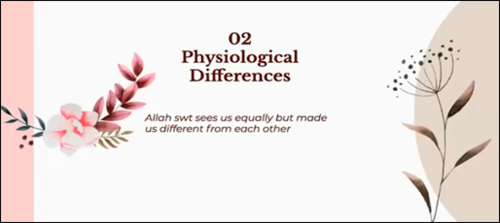
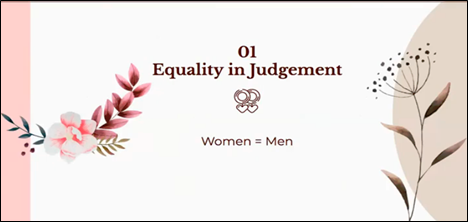
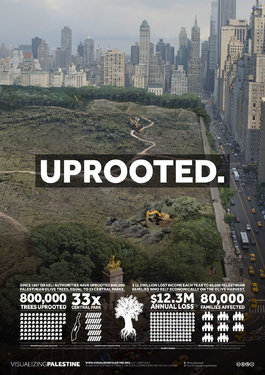
.thumb.jpg.6da183e13495367dc21fa0385fa4a520.jpg)


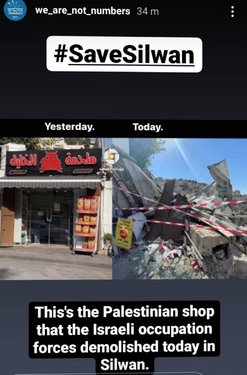
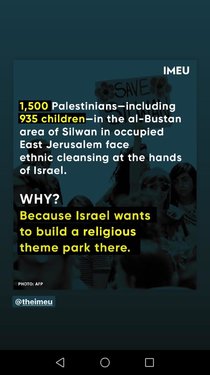
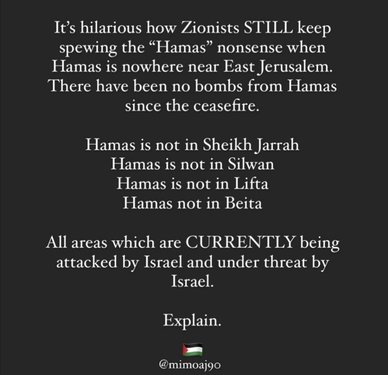
.thumb.jpg.4bbde5af0bb89c14961a85c0bd8312f6.jpg)
